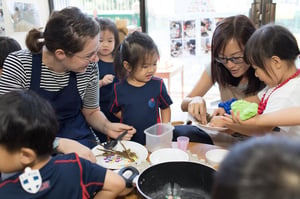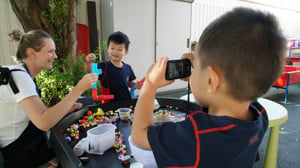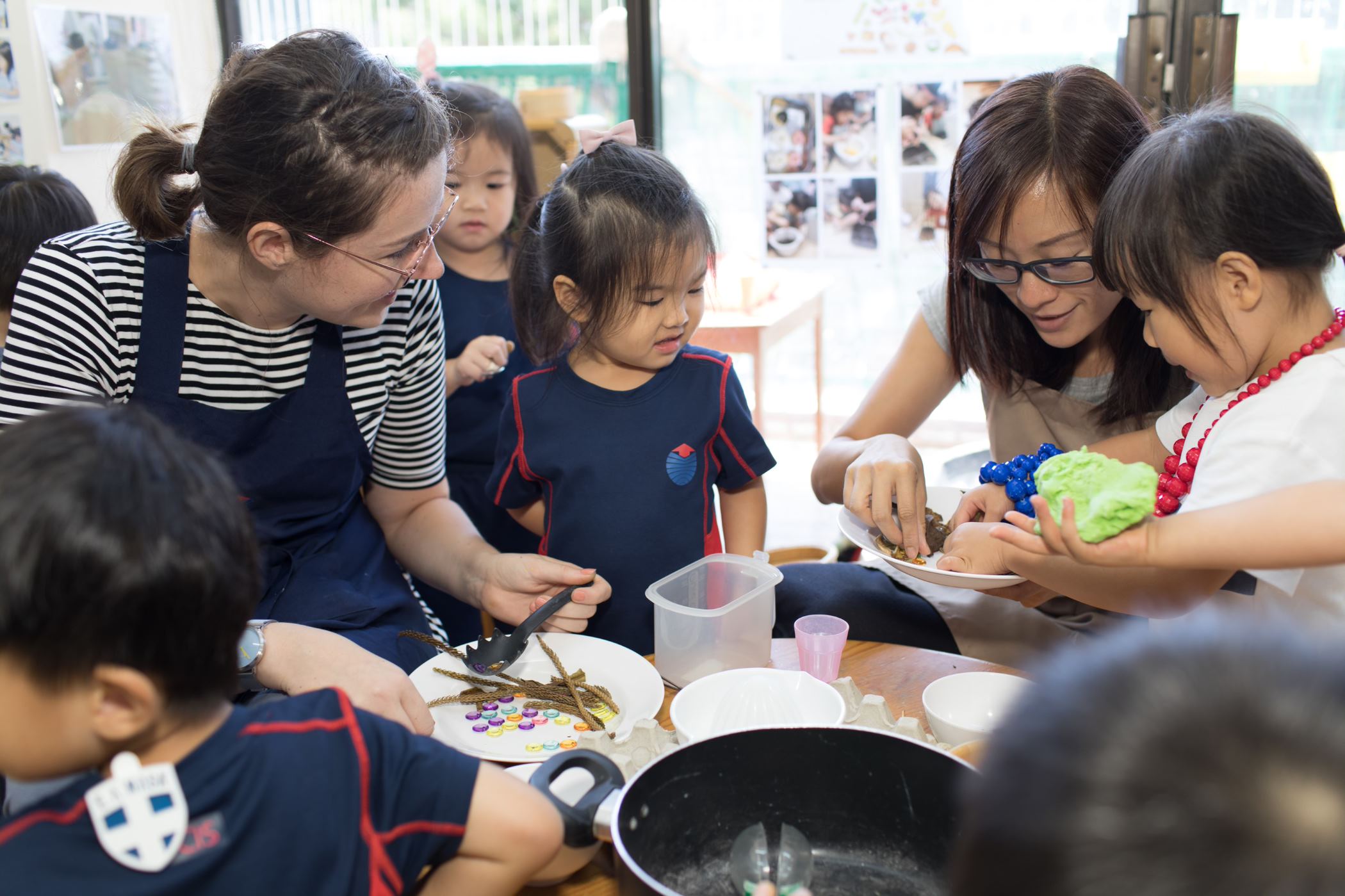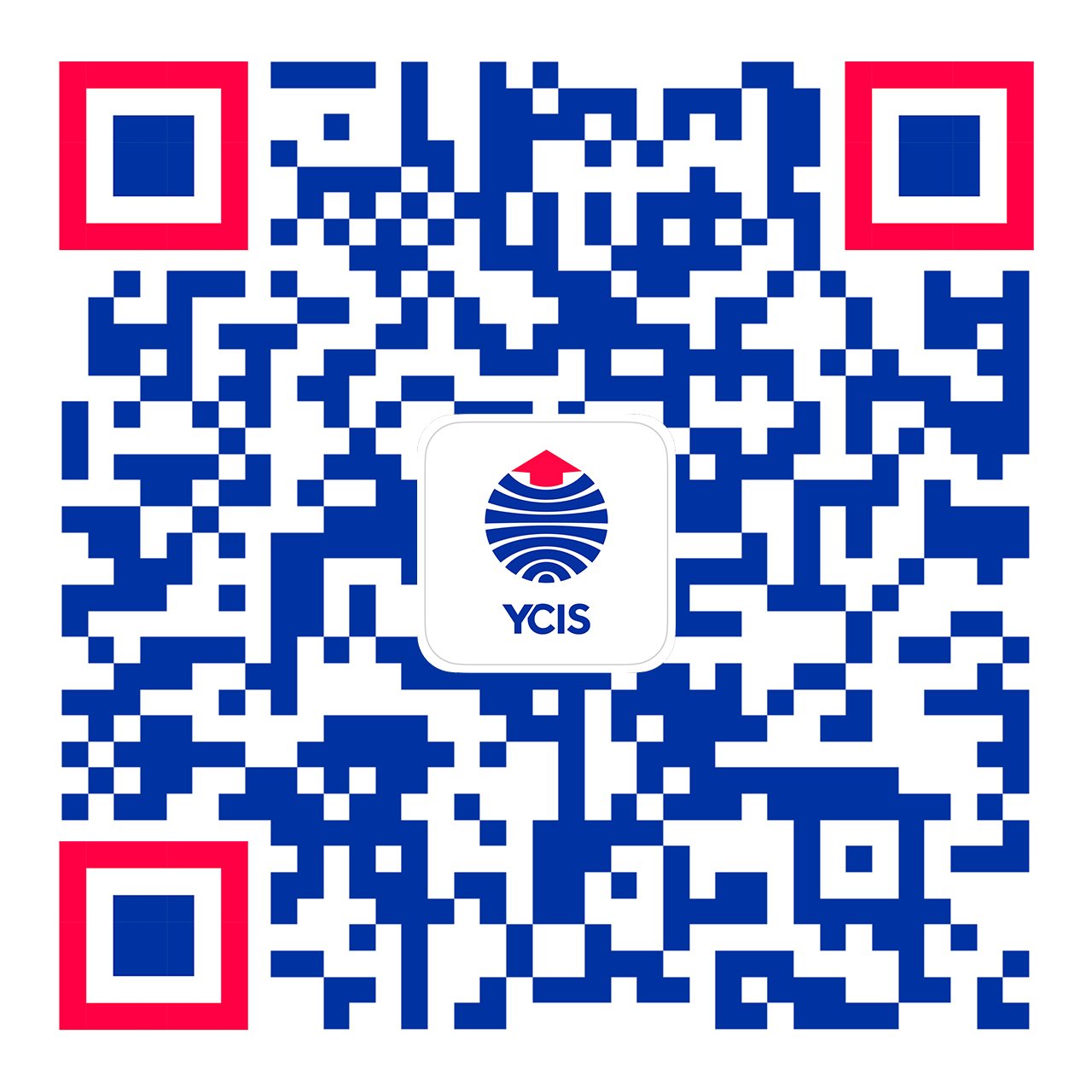By Rachel Blois (YCIS Educator)
“Emergent Curriculum begins with an openness to what children are doing, thinking, and saying.” (Stacey, 2009). At Yew Chung International School, ‘we believe that each child is unique, with innate talents and gifts that should be nurtured to the fullest potential.’ In our Early Childhood Education section, we start with the very youngest learners and spend a long time discovering how we can carefully curate a supportive, warm and holistic environment for each child. Perhaps this is why you have chosen for your child to attend YCIS, or you are thinking of sending your child to our school. Let’s briefly look at some of the key components within our Early Childhood Education division which is based on an Emergent Curriculum!
Why is an Emergent Curriculum important?
Within our classrooms, we have a unique group of learners, each with their own interests, passions and curiosities. One child might be fascinated by insects, big and small. Another might want to sit and paint for some time each day. While another builds imaginatively with construction toys. Within an Emergent Curriculum, we allow children to choose their own activities and resources. This child-centred approach allows children to explore, develop and grow at their own pace.

As educators, it is our job to observe the child and notice what he or she is doing in the environment. This is a complex process as we go beyond the obvious to observe the underlying meaning behind their play.Before responding, we will reflect on what we have seen as a teaching team and engage in a reflective discussion on how we can extend the learning playing out within our classrooms. We will also talk to parents about their observations of what their child has been engaging with at home. We welcome parents’ perspectives as it helps to give us, as educators, a deeper insight into the learning that is happening.
From there, we will respond in a way that provides opportunities to support and extend the learning. This could be a conversation with the children to find out more, adding new resources to scaffold the children’s development or creating a provocation to explore something new.
What do teachers do in class?
In each class, we have co-teachers, who are able to support children by speaking English, Cantonese or Mandarin. Our first priority in the class is to make every child feel safe and welcome. Relationships play a critical role within our teaching and learning (Lee, Carr & Green, 2001). We spend extended amounts of time observing children as they play, engaging in dialogue with them and supporting them as their relationships develop. As we get to know our students and their families, we learn more about what interests the children and create learning experiences specifically for each child.
How to do I know my child is learning?
A common question we might be asked is “How will my child learn the alphabet if he’s only playing with trains?”. As teachers, we seek to observe a range of learning areas within your child’s play, including social and emotional development, problem-solving, resilience and confidence. The development of these skills is essential in becoming a competent learner, and they start in the early years!
We will take observations, guided by the seven learning areas within the Early Years Foundation Stages (EYFS). This helps us in ensuring each child is developing holistically, and identify areas where a child might need extra support. As teachers, we are creative in how we observe as children have so many ways of exploring, creating and developing their knowledge. These observations may take place as they play with their friends, or in conversations with teachers. We believe that each child learns at their own pace and we work to provide holistic learning opportunities which cover all the learning areas within a child’s current interest and play.

Our aim is to involve you, as parents, as much as possible in this process. As a parent, you are your child’s first teacher. You know your child the best, what makes your child excited, what frustrates your child and what their interests are at home. We will share your child’s progress as we make regular weekly contact with you as well as through our Portfolios, Learning Journeys, Parent Teacher Conferences and Reports. We value a strong Home-School Partnership and the relationships we build with families.
How can I support my child at home using an emergent approach to learning?
- Our first advice is to start slow! There are so many ways to develop your child’s emergent play at home, so take some time to figure out what might work for your family. Rather than buying specific toy sets or models, you can buy or collect ‘open-ended’ materials. Open-ended toys and resources are objects which may have many uses and are not bound to one form of play.
- For example, plastic food items, such as fruit and vegetables, have one function – to be pretend fruit and vegetables. However, a resource such as pom-poms could be used for role-play, dramatic play, sensory play or creative play. They stimulate your child’s imagination and creativity. There are lots of open-ended materials that you can find within your home as well as in nature.
- Alexandra Louis shares different resources you can use in her blog ‘What do children learn from loose parts play’
Janet Lansbury has several great resources you can use to find out more, ‘Play Space Inspiration’ would be a great place to start.
By now you should have a better idea of how an Emergent Curriculum works at YCIS and how it could work in your home too! As teachers, we know that hands-on learning can be a powerful way of learning for children and adults. If you would like to come to see your child’s class in progress, please let your child’s class teacher know.
We have a passion for child-centred education and would love to share this passion with you! If you are new to YCIS and would like to learn more about our Early Childhood Education programme, please visit our website and join us at an upcoming information session!

References
Lee, W., Carr, M., & Green, P. (2001). Documentation of Learning Stories : a Powerful Assessment Tool for Early Childhood, 1–26.
Stacey, S. (2009). Emergent Curriculum in Early Childhood Settings: From Theory to Practice. Redleaf Press.



